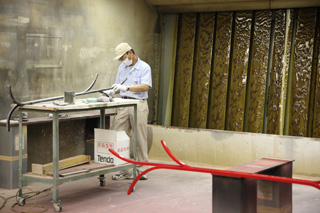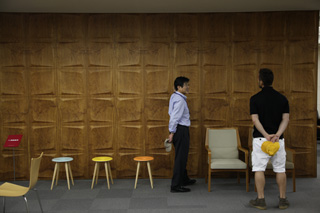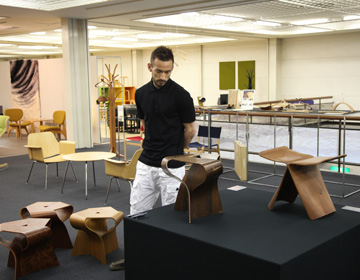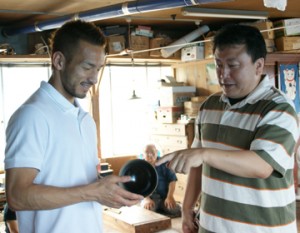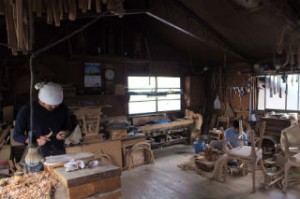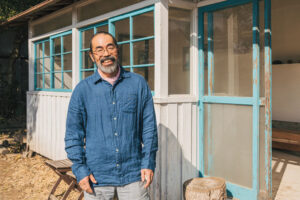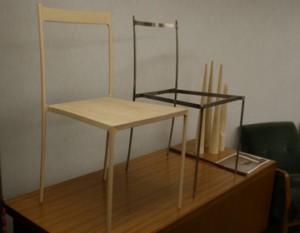Making wooden airplanes?!
Tendo, Yamagata Prefecture is famous for ”shogi” pieces, and that speaks for itself as being a woodcraft city. Tendo Mokko was started in 1940 as a craftsman’s union. Initially, it was a gathering of carpenters, craftsmen for sliding doors, and cabinet makers, but soon after they started work, WW2 started. They made such things as ammunition boxes, but a unique product was wooden “airplanes”. They could not be flown, but they were decoys to lure attacks, and to spread false intelligence. “But the enemy might have known that they were fake.“ Yukio Fukushima said. The wooden decoys were not bombed.
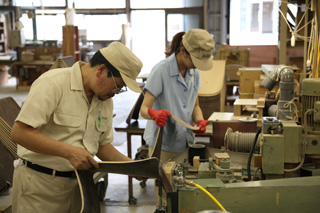
Masterpiece “Butterfly Stool”
The company was officially incorporated as Tendo Co.Ltd. after the war. With whatever materials available, they built and sold items such as cabinets and sinks. At one time they made furniture for the Allied occupation forces, but soon they were building furniture for general use. They started to gather attention when they started building molded plywood furniture. Molded plywood is made by placing thin boards with the grain of wood running crisscross to each other, setting it in a mold, and heating and pressing the wood. Tendo was the first to adopt this technology and won attention of the industry as well as the customers.
A famous product named “Butterfly stool” was born. As the name suggests it’s shape reminds one of a butterfly extending its wings. The design extends not to the seat itself, but also to the legs, and the overall design expresses the gracefulness of a butterfly. It was first produced in 1956 and accepted by consumers, winning the Minister of Trade and Industry Award in 1959.
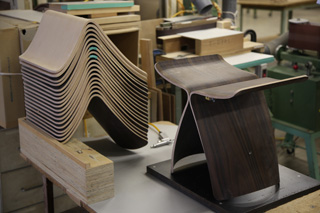
Still a group of craftsmen
Since then, Tendo Co., Ltd has won many awards and remains popular. It has adopted many new technologies. For example, they adopted the computer controlled NC router in 1980.
When Nakata visited them, there was an automobile steering wheel on display that they make as OEM product. There are also other projects that were requested by external partners from both within Japan and overseas. While there have been cases where such collaborations produced decent products, Fukushima stated that they “try to keep away from overseas projects because we are worried about losing our identity.“
“I guess we are still craftsmen at heart.” he said. “We manage our work as a corporation, and we have grown larger, but in essence, we are still a bunch of craftsmen and that has not changed over the years.” The sight of 100 furniture craftsmen passionately working on their crafts left a strong impression on our minds.
